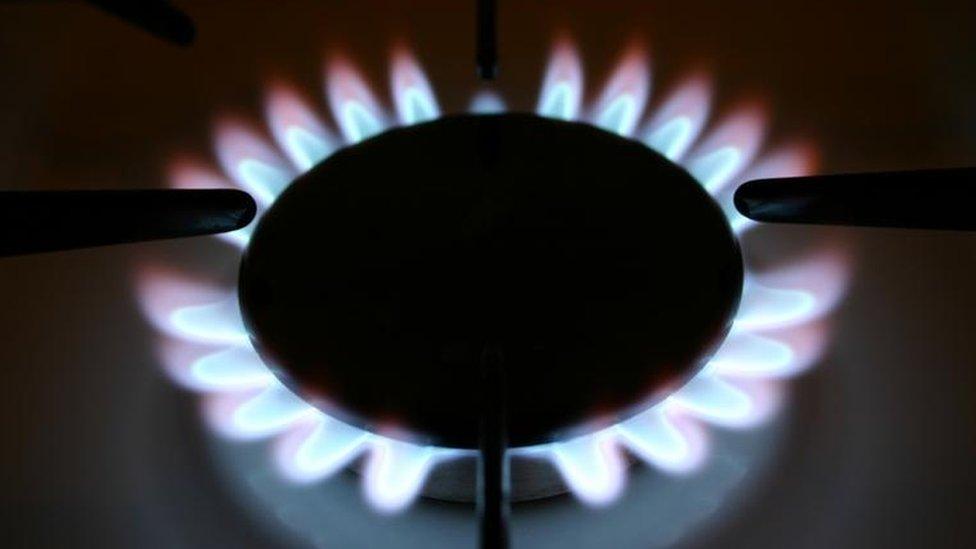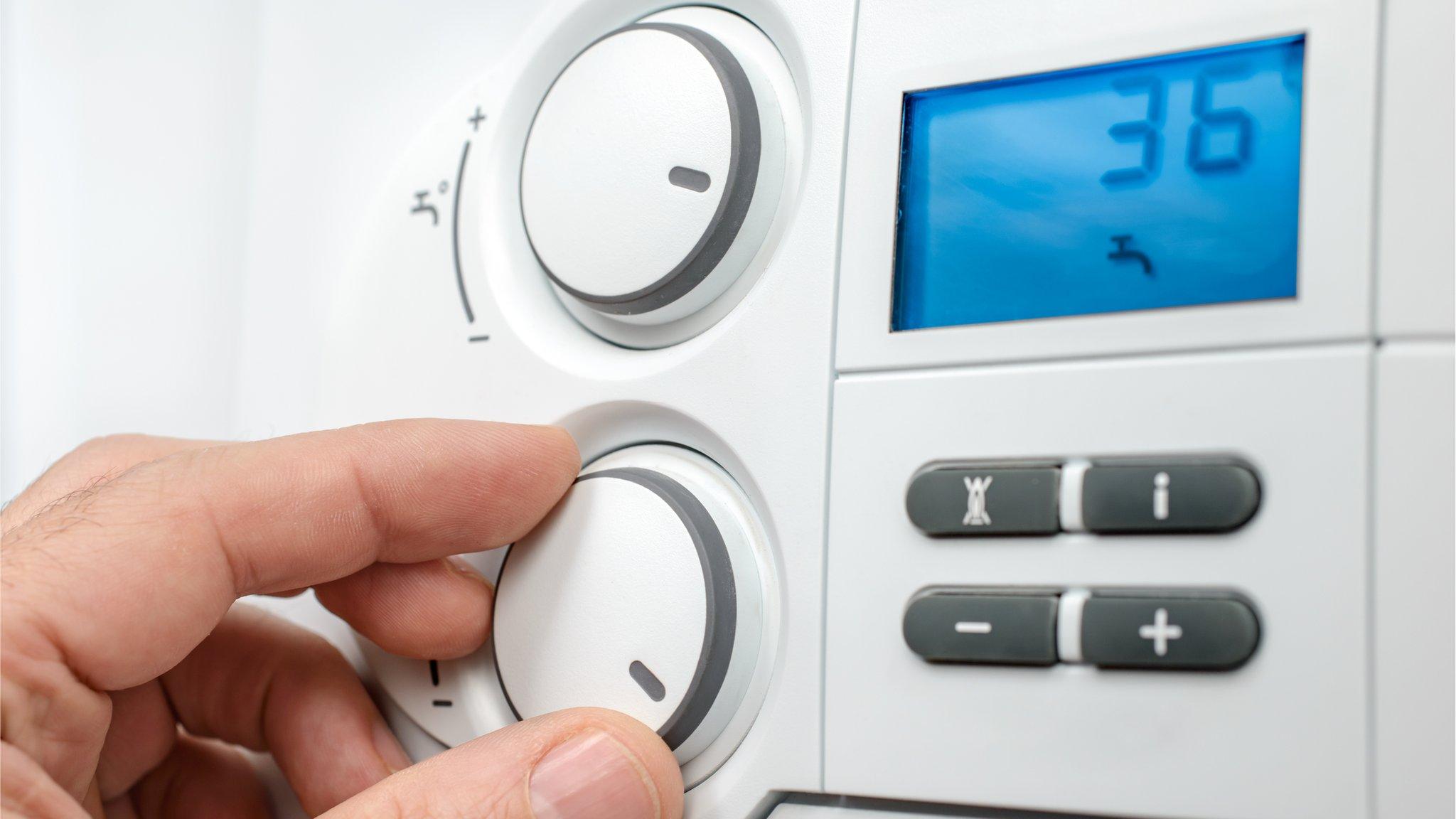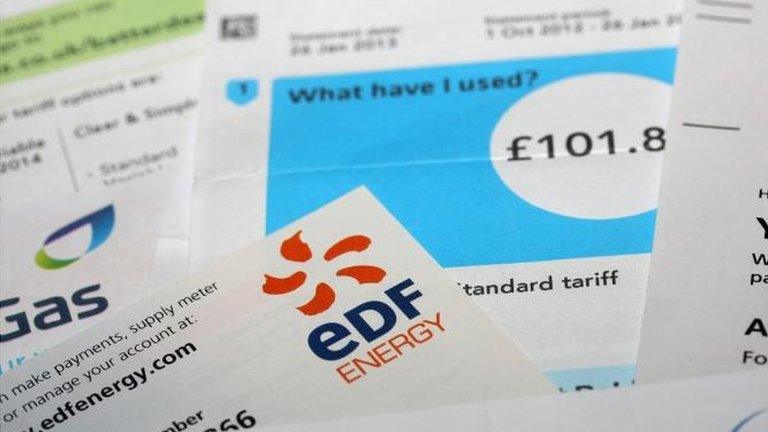Minister to investigate energy firms after profit claim
- Published

A claim that energy suppliers are making larger profits than they have admitted is to be investigated by the Business Secretary, Greg Clark.
Gas and electricity firms may be making six times more than they state, according to the Sun newspaper.
However, trade body Energy UK rejected the Sun's claims, saying they were "a misrepresentation of the facts".
The allegations were based on a report commissioned by Energy UK from accountancy firm PwC.
According to the regulator, Ofgem, UK energy firms make a 4% profit margin on the price of a typical dual fuel bill.
But using figures in the PwC report, the Sun said that suppliers could actually be making a 24% profit margin.
In the report, PwC said the average cost of supplying energy to a household - covering the cost of wholesale energy and sending bills - was £844 a year.
The Sun said 70% of customers are on standard variable tariffs, and pay up to £1,172 a year.
Assuming the costs are £844 a year, that would leave them with a profit of up to £272, or 24%, after VAT is removed.
Price pressures
The Sun accused Energy UK of cherry-picking parts of the report to put on its website that failed to include details of the profits.
Energy UK said it completely rejected any implication that the PwC report was changed.
"The report used the publicly available consolidated segmental accounts of major energy suppliers which are provided to the regulator, Ofgem," a spokesman said.
"These accounts show average profits of 4% and that figure appears on the Energy UK website."

The spokesman added: "The purpose of the report is simply to help understand how the different pressures on an average bill have changed over recent years.
"It was not intended to present, or to hide, how much profit different firms make across their various tariffs."
Lawrence Slade, chief executive of Energy UK, told the BBC: "The Sun's numbers are a complete misrepresentation of the facts.
"You can't extrapolate in the way the Sun has. It's just not maths."
Shop around
Business Secretary Greg Clark said he would examine the evidence and ask Energy UK for a meeting.
"This report appears to confirm my concern that the big energy firms are punishing their customers' loyalty rather than respecting it," he said.
Some customers are put on a standard variable tariff, which is usually the most expensive option, after a cheaper 12-month deal ends, unless they switch to another rate.
In total, 66% of customers are on standard variable tariffs, according to Ofgem.
The regulator pointed out that customers can save £300 a year by switching to a fixed-rate tariff, and said those on standard variable tariffs were contributing to higher profits.
"Suppliers do make higher profits from customers that remain on standard variable tariffs than those on fixed deals," an Ofgem spokesperson said.
"That is why we are working to make it quicker and easier for consumers to shop around and get a better deal."
- Published30 September 2016

- Published9 September 2016
